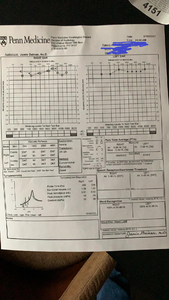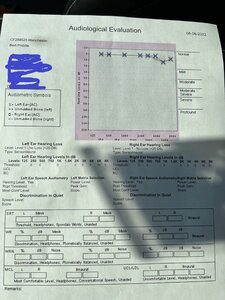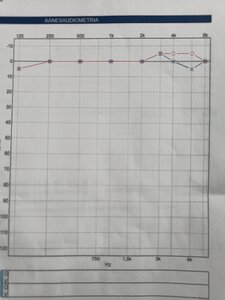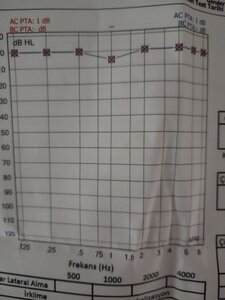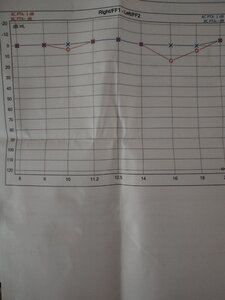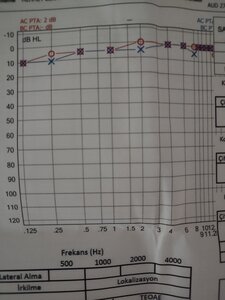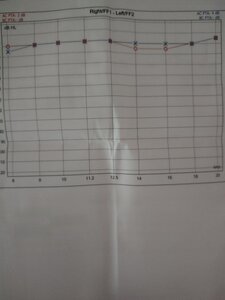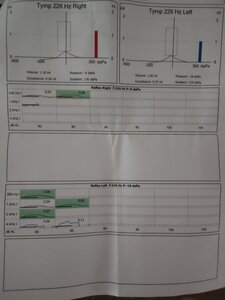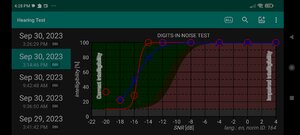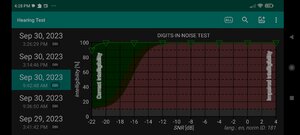I was very disappointed when my tinnitus overwhelmed me a year ago, along with pain hyperacusis and sound reactive tinnitus. I asked for an extended audiogram. Denied. At the time I thought it was important. There will be exceptions on Tinnitus Talk but most people over 30-35 will have hearing loss above 9,000 - 10,000 Hz, let alone up to 20,000 Hz. Think of those neighbourhoods that use high-frequency sounds to dispel youths, yet adults cannot hear it. Most of us love music, and a youth of discos, festivals, concerts and cinema experiences with aging wipe those higher frequencies out. Most do not get tinnitus and can hear fine.
So my initial dismay at not getting the extended audiogram was unfounded. Besides there not being any hearing aids that work beyond 8,000 Hz, it would be pointless as they could do nothing about it anyway.
You could possibly attempt some residual inhibition at the hearing loss identified, but, well, who knows...

 Member
Member
